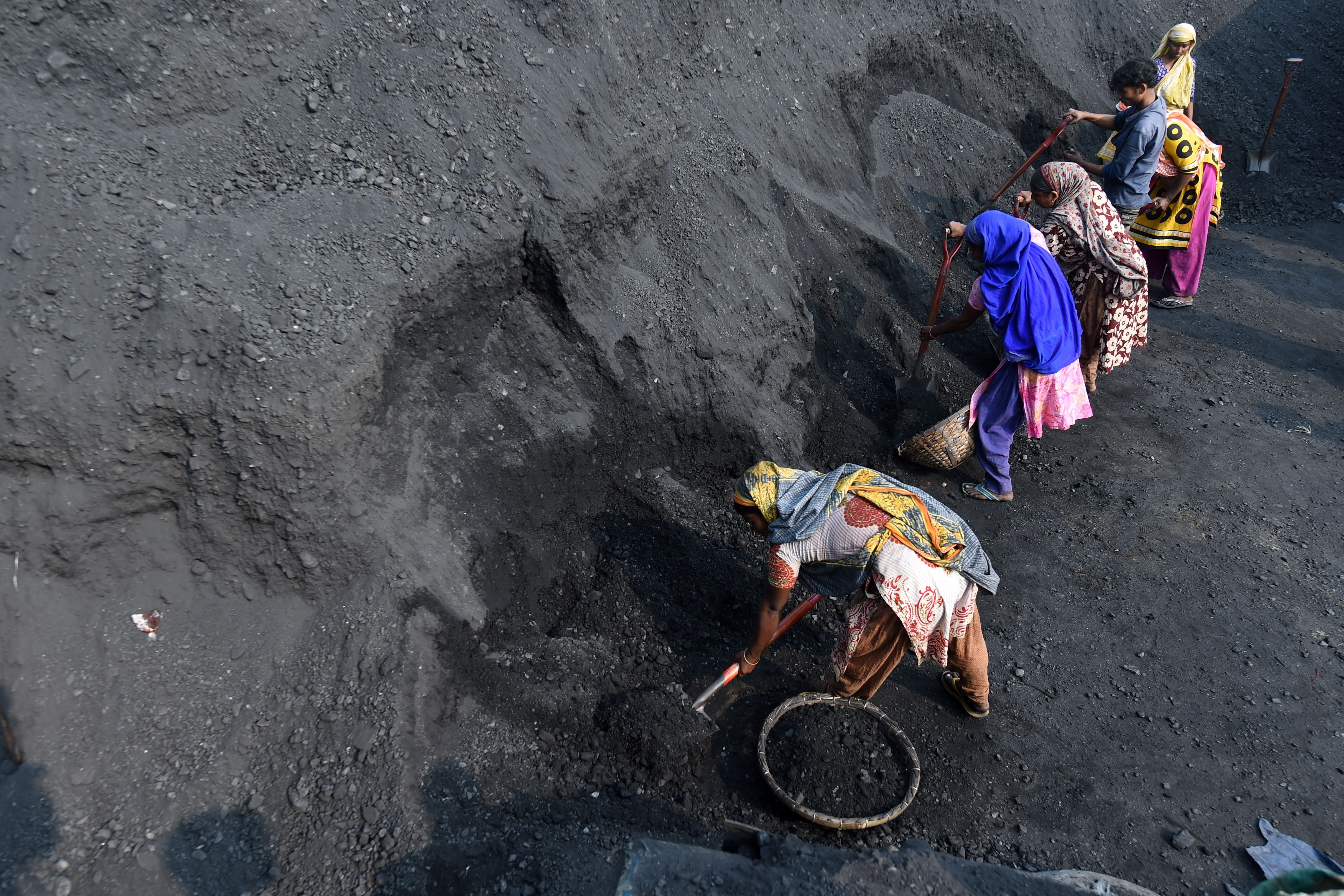‘Unacceptable loopholes’ could undermine UK pledge to end overseas fossil fuel funding, campaigners say
Exclusive: Government’s policy to end overseas fossil fuel projects is ‘rhetoric over substance’, says Labour

The UK’s pledge to end support for fossil fuels overseas is at risk of being undermined by “unacceptable” loopholes and exemptions, campaigners have warned.
Boris Johnson announced that the UK will end support for fossil fuel projects in other countries at a climate summit in December, and the policy came into force in March.
The government has pledged to end export finance, aid funding and trade promotion for new coal, oil and fossil gas projects overseas – with “very limited exceptions”.
It is a sharp change in direction for the UK, which supplied £21bn in support for oil and gas exports through trade promotion and export finance in the past four years alone. Earlier this month, six European countries announced that they would join the UK in stopping public export finance for fossil fuels.
But campaigners have raised concerns that exemptions included in the fine print of the government’s new policy mean that large sums of public money may still be spent on fossil fuels.
Anna McMorrin, Labour’s shadow international development minister who is responsible for climate justice, told The Independent: “There’s a lot of rhetoric to end fossil fuels, but within that there are exemptions and loopholes, which means that the government will continue to funnel a vast amount of UK taxpayer money into fossil fuel projects overseas.
“It would be unacceptable in any year, but in a year where the government is talking up its climate ambitions and hosting Cop26, it shows staggering hypocrisy.”
The Independent’s Stop Fuelling The Climate Crisis campaign calls for more action from the UK to stop its support for fossil fuels, including new projects in other countries.
In a policy paper released in March, the government listed one of the exemptions as being continued support for fossil gas projects overseas if the recipient country could meet certain criteria. These criteria include a climate plan that is in line with reaching net-zero emissions by 2050.
Concerns have also been raised that, despite the new policy, fossil fuel financing will continue to flow from the UK’s development bank, CDC group.
The group, which had at least $987m (£711m) invested in or committed to fossil fuel projects in 2019, is not explicitly obliged to follow the government’s new policy – although the bank told The Independent its own policy on fossil fuels matched the government’s position.
“Our fossil fuel investment policy is in complete alignment with that of the UK government and any suggestion to the contrary is simply untrue,” the spokesperson said.
“We will only invest in gas power in exceptional circumstances where there is an acute development need – 600 million people in Africa do not have electricity – and where the country in question has a credible emissions reduction plan in line with the Paris Agreement.”
But Ms McMorrin said further investment in fossil gas overseas risked “locking vulnerable countries into a fossil fuel era for decades to come”.
“These projects not only impact our ability to address climate change, but they also directly impact local communities – people who are already facing the blunt edge of climate change,” she said.
Her warning comes as the UK faces a legal challenge over its support for a “climate-wrecking” fossil gas project in Mozambique.
Just months before Mr Johnson announced his new policy, the government pledged $1bn in public finance in support of the gas mega-project. The development is situated in an area experiencing escalating violence, which some experts link to grievances stoked by the fossil gas industry.
This project – and others agreed before the policy was introduced – are also exempt from the new rules, according to government guidelines.
Tony Bosworth, a climate campaigner at Friends of the Earth, which is challenging the UK’s decision to fund the project, told The Independent: “The UK government shouted loudly about stopping support for extraction of fossil fuels around the world, but is stubbornly pushing on with its plans to provide hundreds of millions in taxpayers’ money to support a huge new gas project in Mozambique, saying that it had been agreed before the change in policy.
“This project would be a climate disaster and has already cost local communities along Mozambique’s coast their homes, farmland and fisheries to make way for this damaging development.
“It’s hypocritical for the UK to be funding this while calling on countries around the world to get serious on the climate crisis.”
A government spokesperson said: “The UK will no longer provide any new direct financial support for the fossil fuel energy sector overseas. This includes export finance, international aid and trade promotion for new crude oil, natural gas and thermal coal projects – with very limited exceptions.
“The UK government welcomes CDC’s commitment to only make investments in energy programmes when they are aligned with the Paris Agreement and aligned with a country’s pathway to net-zero emissions by 2050.”
The CDC spokesperson added: “CDC has invested over $1bn in the fight against climate change since 2017 and 30 per cent of our total capital to be allocated in 2021 will go to climate finance and renewable energy projects.”
Join our commenting forum
Join thought-provoking conversations, follow other Independent readers and see their replies
Comments



Bookmark popover
Removed from bookmarks